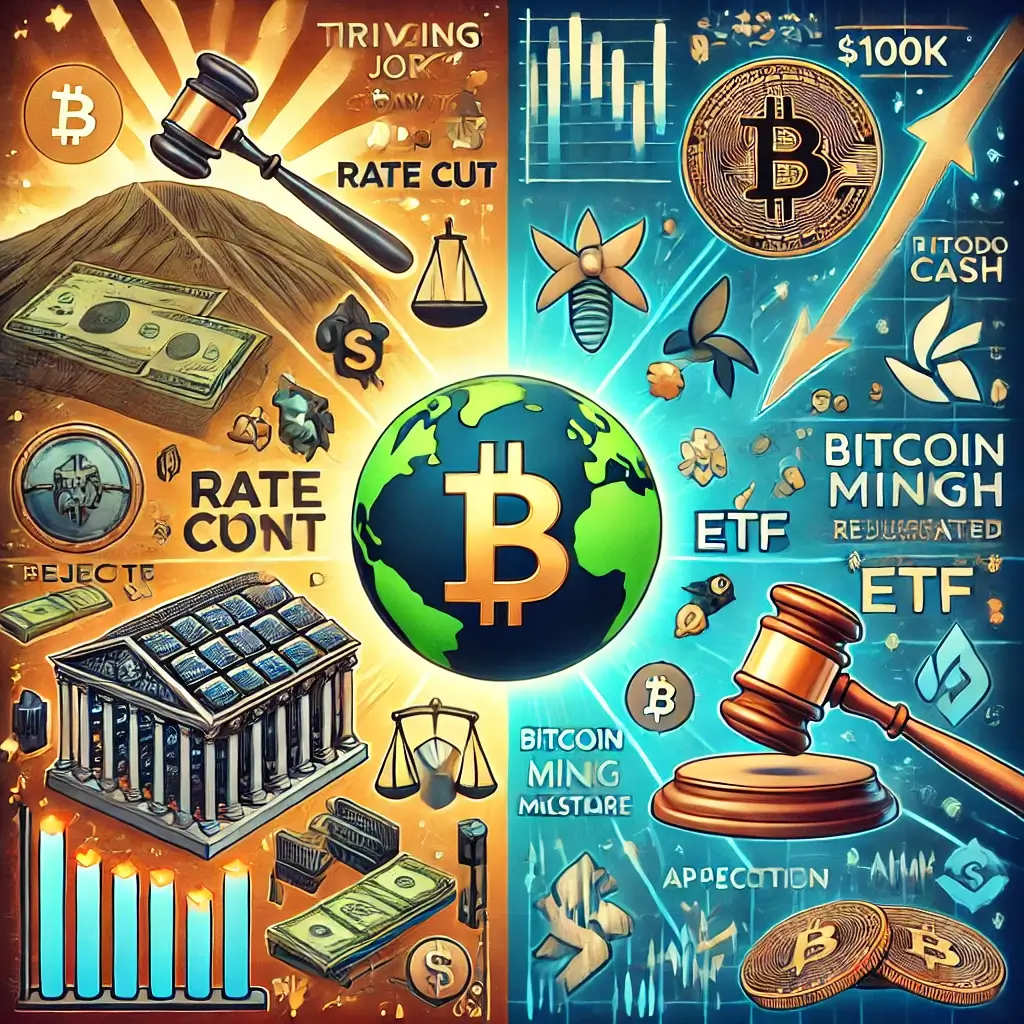AI Tokens, Groundbreaking Trends in Regulations, , and Bitcoin Milestones : Revolutionizing the Crypto Market in 2025
From Senator Tim Scott’s regulatory focus to Thailand’s exploration of Bitcoin ETFs, and from meteoric rise of AI tokens to the Ripple’s ongoing legal battle with the SEC , the industry is abuzz with activity. Simultaneously, Bitcoin’s rally past $99,000 amidst inflation concerns underscores its role as a hedge against economic instability. Together, these stories highlight the rapid evolution and increasing adoption of digital assets across the globe. 1. Senator Tim Scott Prioritizes Crypto Regulation as Banking Committee Chair The new chair of the U.S. Senate Banking Committee, Senator Tim Scott, has placed crypto regulation at the forefront of his legislative agenda. With financial inclusion and innovation as core goals, Scott aims to craft a clear regulatory framework for digital assets. Criticizing past leadership under SEC Chair Gary Gensler, he highlighted the lack of clarity in crypto policies, which has driven innovation abroad. The senator emphasized the importance of tailored solutions for stablecoins, trading platforms, and custody mechanisms to foster a balanced approach to innovation and consumer protection. Scott’s leadership comes at a time of significant political shifts in the U.S., with crypto-friendly lawmakers gaining influence. These developments reflect the growing recognition of cryptocurrencies in mainstream finance. However, balancing regulation with innovation remains a challenge. The committee’s focus on establishing a structured pathway for digital assets could pave the way for more widespread adoption while addressing long-standing regulatory ambiguities. The potential impact on the crypto market is profound. Clear regulatory guidelines could boost investor confidence and attract institutional capital, stabilizing and expanding the market. However, excessive regulation risks stifling innovation. By creating a framework that encourages responsible growth, the U.S. could position itself as a leader in the global digital asset space. 2. AI Token Market Could Reach $60 Billion by 2025, Predicts Bitget CEO Gracy Chen, CEO of Bitget, forecasts that the AI Tokens market could soar to $60 billion by 2025, quadrupling its current market value of $15 billion. She cites the growing use of AI agents in trading, wallet management, and crypto operations as key drivers. Despite rapid growth, she advises investors to remain cautious, stressing the need for human oversight given the nascent state of AI technologies. Practical applications, such as automation and programming, are areas to prioritize. This prediction aligns with recent trends in the AI Tokens market, which grew 222% in Q4 2024 alone. The rise of AI Tokens projects like Solana-backed Goatseus Maximus has fueled this momentum, making Solana a dominant platform in this niche. While AI tokens are gaining traction, their long-term success will depend on real-world utility and scalability. The burgeoning AI Tokens market reflects the potential for AI and blockchain convergence. Successful applications could redefine efficiency in various sectors, attracting investors and developers. However, the AI Tokens market’s speculative nature may also lead to volatility, necessitating careful investment strategies. 3. SEC Appeals Ripple Case Ruling Amid Gensler’s Departure The SEC’s decision to appeal Judge Analisa Torres’ ruling in the Ripple case marks a pivotal moment for cryptocurrency regulation. While the court previously deemed XRP not a security in retail transactions, institutional sales were ruled in violation of securities laws. The appeal comes as SEC Chair Gary Gensler prepares to step down, signaling potential shifts in the regulatory approach under new leadership. Ripple has reiterated that the decision on XRP’s retail classification remains law, solidifying its position as a non-security in such transactions. However, the SEC’s appeal raises questions about broader implications for crypto classification and market dynamics. The case outcome will influence how digital assets are treated under U.S. law, potentially affecting the market’s future trajectory. The appeal highlights the regulatory uncertainty facing the crypto industry. A favorable resolution for Ripple could set a precedent, encouraging innovation and market participation. Conversely, a stricter ruling could dampen investor confidence and stifle growth. Gensler’s exit adds further complexity, leaving the crypto community optimistic about a more favorable regulatory environment. 4. Thailand to Allow Bitcoin Spot ETF Listings for Local Exchanges Thailand’s SEC is considering permitting Bitcoin spot ETFs on local exchanges, reflecting its ambition to become a digital asset hub. This move follows the success of the ONE Bitcoin ETF Fund, launched in 2024, targeting wealthy and institutional investors. By enabling direct exposure to Bitcoin, Thailand aims to cater to the growing interest in cryptocurrencies while ensuring robust investor protections. With active crypto accounts more than doubling to 270,000, the Thai market is primed for innovation. The SEC’s broader agenda includes allowing bond-backed stablecoins and piloting Bitcoin payments in tourist regions. These initiatives indicate Thailand’s proactive approach to digital assets, balancing adoption with regulatory safeguards. A Bitcoin ETF listing would position Thailand as a leader in regulated crypto investment opportunities. It could attract foreign investors, boost market liquidity, and inspire similar initiatives in other jurisdictions. However, global market volatility and local investor education remain key challenges. 5. Core CPI Decline Sparks Bitcoin Rally The unexpected drop in core inflation, despite a 2.9% rise in the broader CPI, has ignited optimism in financial markets, particularly in cryptocurrencies. The prospect of Federal Reserve rate cuts has spurred Bitcoin’s price to surge by 2.9%, crossing the $99,000 threshold. Investors see digital assets as a hedge against traditional market uncertainties, aligning with broader adoption trends. This price surge is part of Bitcoin’s ongoing bull run, with the cryptocurrency appreciating over 40% since November. Other digital assets, including Ethereum and Solana, have also rallied, reflecting renewed investor confidence. Market dynamics suggest a correlation between inflation trends and crypto performance, as monetary easing boosts risk-on sentiment. The rally reinforces Bitcoin’s position as a store of value and an alternative asset class. A sustained price increase could attract more institutional interest, further solidifying its mainstream acceptance. However, the speculative nature of crypto requires vigilance amid macroeconomic shifts. 6. Bitcoin Smashes $99,000 Amid Inflationary Concerns Bitcoin’s ascent to an all-time high of $99,000 highlights its growing role as a hedge against inflation and economic uncertainty. This surge coincides with a 2.9% increase in annual CPI and declining core inflation,







